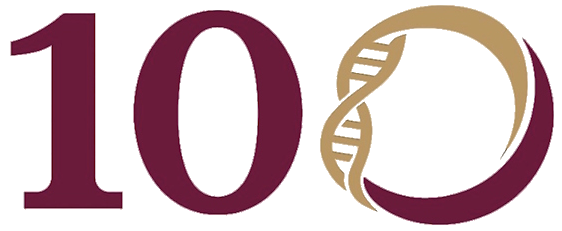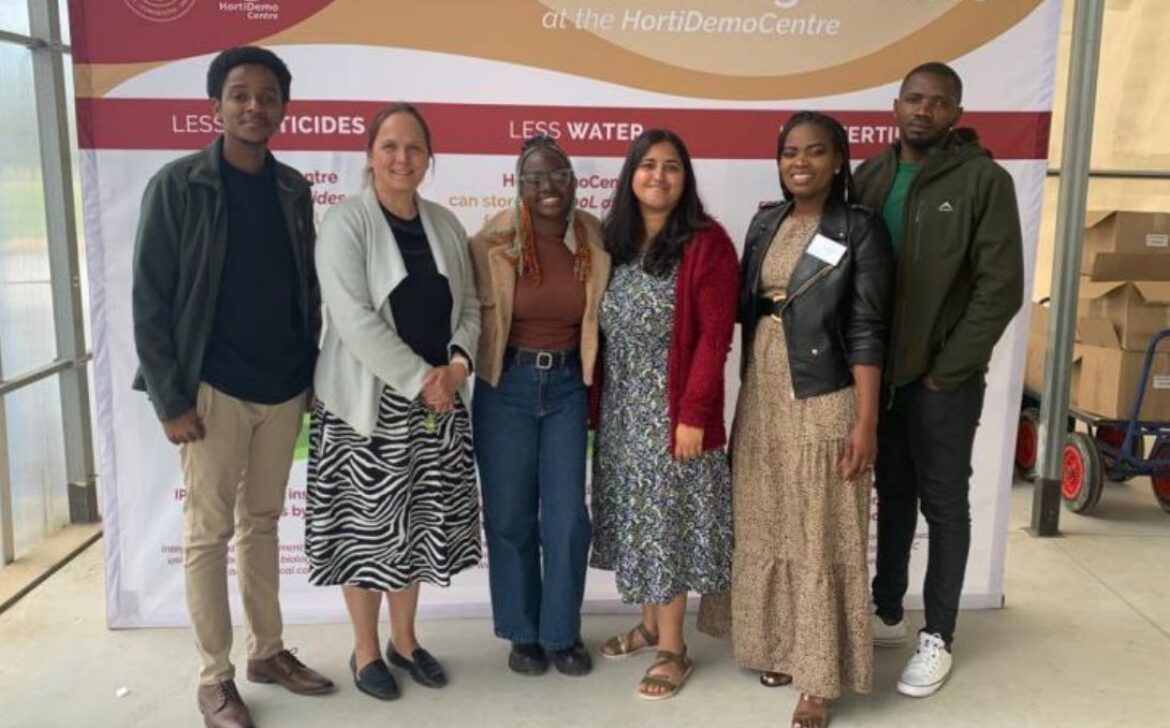The Agrication Programme (Pilot)
The Agrication Programme was piloted in 2023 as a programme exposing learners to agricultural research environments and technologies. Two agricultural research environments hosted 125 learners over four practical demonstrations which linked curriculum topics teachers from participating schools were struggling with (figure 1). A Community of Practice for Agricultural Educators was also initiated as an evaluator platform for relevant learner and teacher development programmes (figure 2).
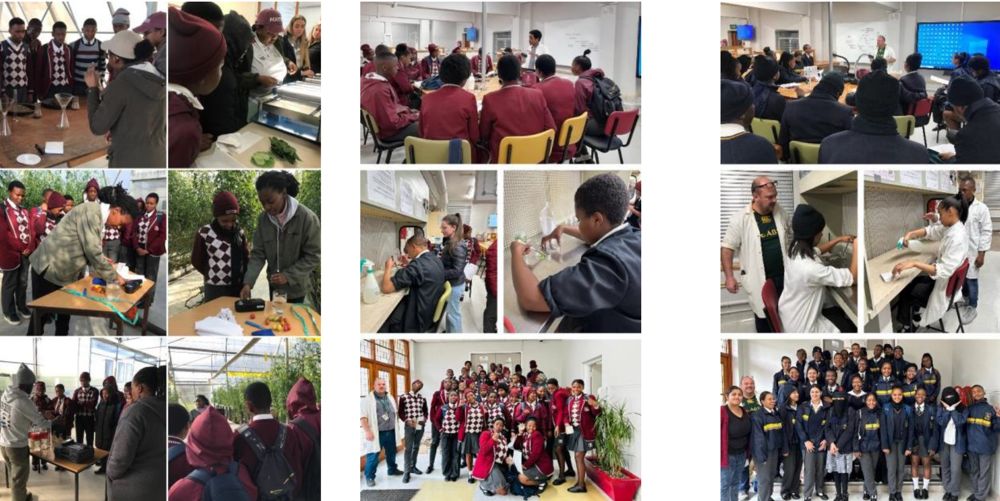
Figure 1: From left to right: Agricultural Sciences and Agricultural Management Practices learners from Kayamandi High School undergoing a practical demonstration on soil properties and greenhouse production (hosted by the Department of Agronomy, HortiDemo Centre); Kayamandi High School Agricultural Sciences learners exposed to a tissue culture demonstration; Soneike High School participating in a tissue culture demonstration. All tissue culture demonstrations were hosted at the Institute for Plant Biotechnology and facilitated through the Plant Growth Promoting Substances Research Group led by Dr Paul Hills.
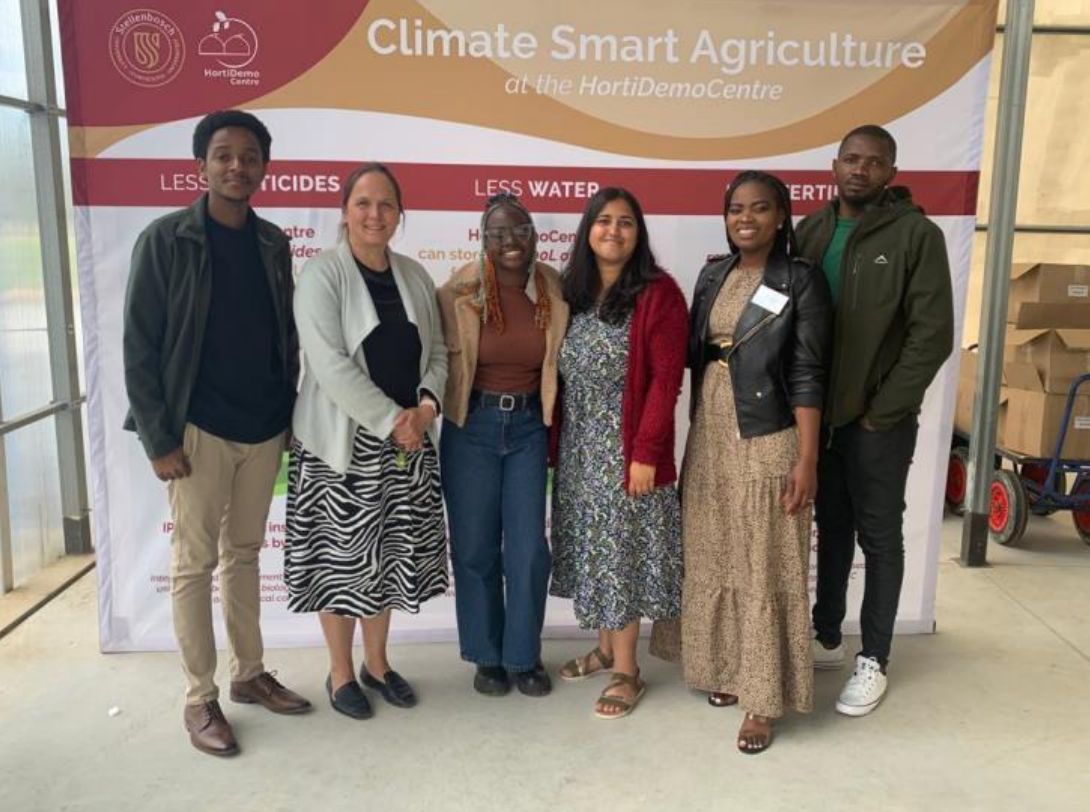
Figure 2: The initiated Community of Practice of Agricultural Educators. From left to right SU Collaborative workshop facilitators (Mhlengi Khambule, Dr. Estelle Kempen, Ms. Olianda Zhuwawo) and agricultural sciences educators, Ms. Akhtari Abbas, Ms. Sinako Matshoba, Mr. Sinethemba Mdlambuzi from Soneike , Kwamfundo and Iqhayiya High Schools. Picture by Mr. Cobus Rabe (Longacres
High School).
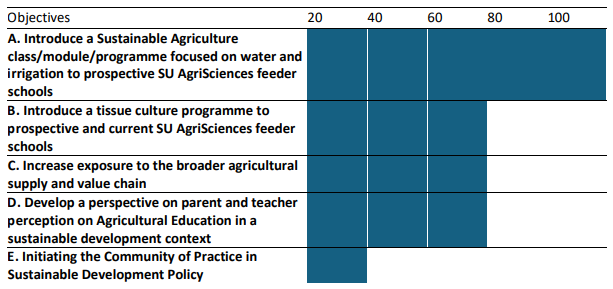
A. Sustainable Agriculture mini-lecture
Four mini lectures were presented to a total of 120 grade 11 students from Kayamandi High School and Soneike High School. The presentations were used to introduce demonstrations (Objective B and C) hosted by the Institute for Plant Biotechnology (tissue culture programme) and the Department of Agronomy (soil and crop management) respectively. Learners were varyingly engaged in the minilecture, some stating that they had covered some of the topics in class while others were seemingly more interested in engaging with the practical elements to follow. A suggestion was to have the minilecture recorded and shared with the teachers and learners beforehand, in so doing using this as a
preparatory tool as well as allow for more time for the demonstrations.
B. Tissue culture programme
The institute for Plant Biotechnology hosted grade 11s from Kayamandi High School and Soneike High School for tissue culture demonstrations on the 28th July and 25th August 2023 respectively. An article descriptively reported on the demonstrations and can be found here. Two out of the three intended schools were able to attend. We were unable to confirm a date with Somerset College despite numerous attempts. A third school will however be hosted, depending on progress made on the other objectives.
C. Industry exposure sessions
The department of Agronomy hosted two grade 11 cohorts from Kayamandi High School in December 2022 and 26th May 2023 respectively. The HortiDemo Centre was the primary demonstration site following the mini-lecture presented in the AgroHub. An article descriptively reported on the exposure sessions and demonstrations. The article can be found here. The latest demonstration also showcased the DIVAGRI solar desalination greenhouse demo unit. Prospects for on-farm exposure visits to DIVAGRI participating farms around Stellenbosch are currently being discussed.
D. Parent and teacher inquiry workshops
A collaborative workshop was held at the AgroHub in October 2023. Teachers from 7 High Schools in the Western Cape participated in the workshop. The workshop sought to identify challenges faced by the teachers in the delivery of the Agricultural Sciences subject, and how our programme can best support them. The teachers identified several challenges and collaborative support approaches. An
outcome was the initiation of the Community of Practice (CoP) for Agricultural Educators (currently hosted on WhatsApp) which will serve as a useful knowledge and perspective-sharing platform as well as a school-based programme critique. The CoP will also serve as an ideal platform to identify teacher training needs. It was difficult to attain parent perspectives, teachers however recommended using Grade 9 subject selection meetings to interact with parents on this topic.
E. Community of Practice in Sustainable Development Policy
The initiation of the senior and postgraduate student focused Community of Practice (CoP) was challenged by the graduation of the early adopting students. However, students from the Department of Agronomy and Institute for Plant Biotechnology showed interest in getting involved, particularly in the demonstrations and exposure sessions. Developing terms of reference for the different CoP working groups is currently under way, we hope to use these as part of a call to students to join. This way interested students are aware of what to expect beforehand. Progress has also been made with collaborating with the Education Faculty, with two senior staff from different departments and a
student teacher society interested to getting involved.

